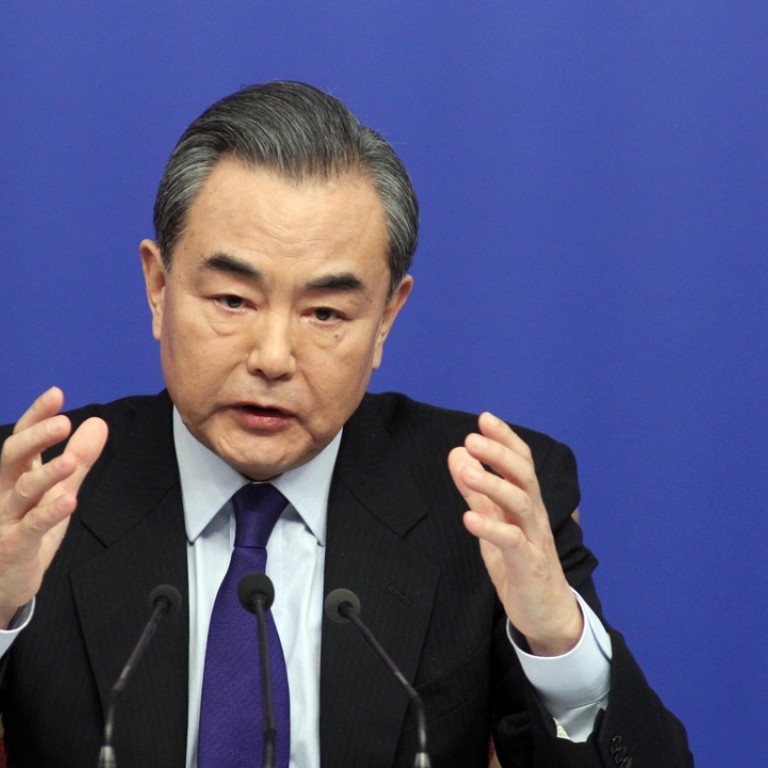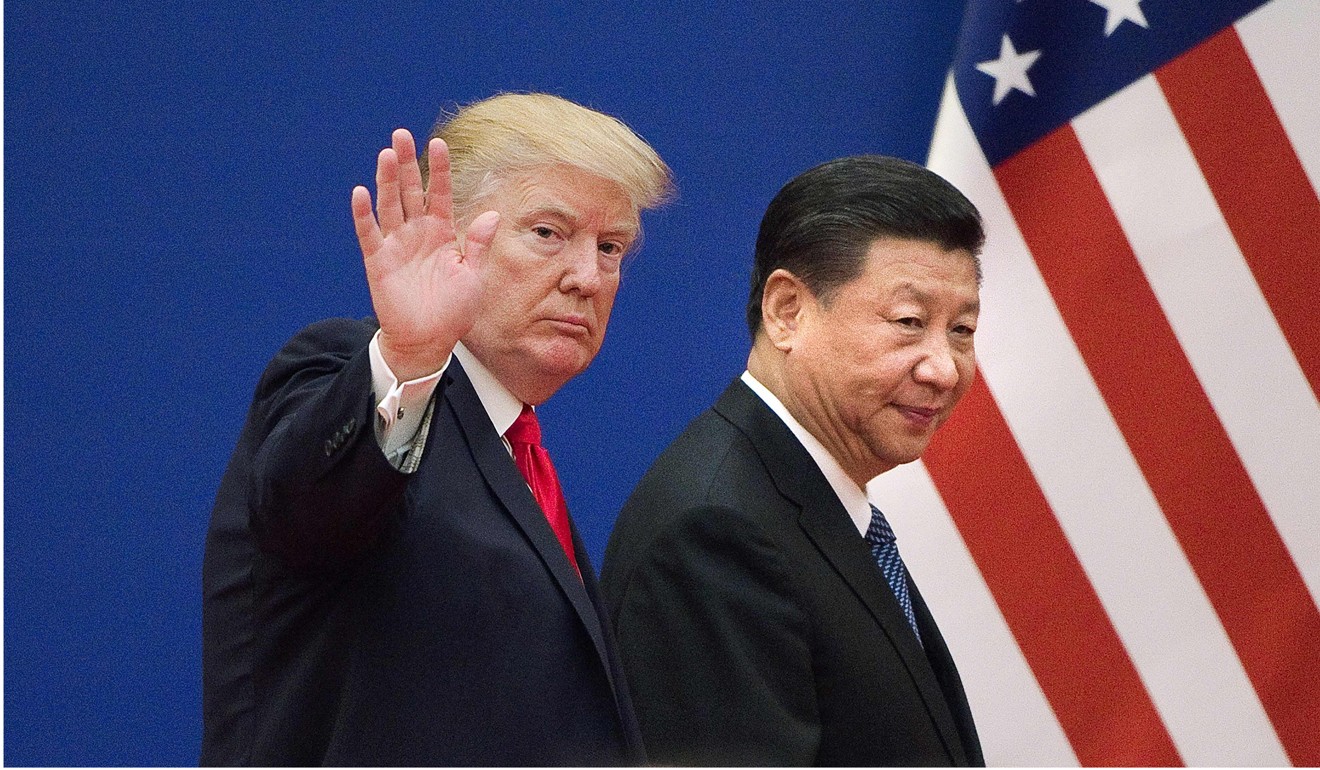
Update | China denies trying to supplant US role in global affairs
Foreign Minister Wang Yi says two nations should see each other as partners not rivals, amid fears world’s two largest economies are on brink of trade war
China is seeking a more prominent role in global leadership but rejected suggestions that it is trying to supplant the United States in world affairs as “strategic misjudgment”.
Foreign Minister Wang Yi on Thursday laid out this year’s broad policy agenda of boosting its presence in Africa, the Asia-Pacific and Latin America, and pushing for talks to defuse tensions over the Korean peninsula.
Asked whether China was deviating from its long-standing policy of non-interference in other countries given that Beijing has pushed for peace talks in Myanmar, dialogue between Israelis and Palestinians, and participated in peacekeeping missions, Wang said Beijing was taking a more proactive approach.
“China will … participate more proactively in reforming and constructing global governance, in resolving regional and international hot issues ... and effectively coping with global challenges together with all parties,” Wang told reporters on the sidelines of the National People’s Congress in Beijing.
One way China is taking a bigger role beyond its borders is through the “Belt and Road Initiative”, its strategy to boost infrastructure and trade links from Asia to Africa that critics say is a way for Beijing to expand its influence and power. In September, China will host a cooperation forum with Africa in Beijing, expected to be attended by the leaders of dozens of African nations, with a belt and road theme. At the last such forum held in South Africa in 2015, Chinese President Xi Jinping announced investments of US$60 billion in the continent over three years and waived 10 billion yuan (US$1.58 billion) of African debt.
Xi will also visit Argentina later this year for the G20 meeting, where more trade and investment deals are expected as China tries to forge closer ties with Latin America.
China’s huge investment in Africa has been met with suspicion elsewhere. US Secretary of State Rex Tillerson said on Thursday that African countries should be careful not to forfeit their sovereignty when they accept loans from China.

But Wang dismissed concerns that Beijing was trying to replace the US in its role on the world stage, saying the two nations should focus more on cooperation.
“Some people in the US believe that China is overtaking the role of the US in international affairs. This is a fundamental strategic misjudgment,” Wang said. “If you say there is competition between China and the US, this should be positive competition and this is normal in international relations.”
Wang said China was not “targeting or replacing anyone” through its engagement with Latin America, Washington’s “backyard”.
He also said China should play a bigger role in regional international affairs as a permanent member of the United Nations Security Council.
“This is what we ought to do, as well as what many others expect us to do,” Wang said.
China will also expand the role of the security-focused Shanghai Cooperation Organisation (SCO), led by Beijing and Moscow, so that it is more active in regional and global diplomacy, Wang said. Its next summit will be held in the coastal city of Qingdao in June. The group includes Kazakhstan, Kyrgyzstan, Tajikistan, Uzbekistan, India and Pakistan and it has held regular counterterrorism exercises in central Asia.
Tensions have been rising between China and the US over trade and their influence in global affairs. Beijing has positioned itself as a defender of free trade and globalisation amid concerns over the protectionist path the US is taking under President Donald Trump.
But China’s approach has sparked fears, especially among its neighbours, that it is gaining too much influence. The latest US national security and defence strategy listed China as a “strategic rival” and called for a strong economic, military and technological response to confront it.
Countries in the Asia-Pacific region are meanwhile calling for stronger ties between Japan, Australia and India under the leadership of the US to form a quadrilateral alliance to counterbalance China amid fears of political infiltration and that Beijing will push smaller nations to take its side as its economic and military power grows.
But Wang rejected concerns that the country posed a threat and said the quadrilateral alliance should not aim to contain China. “Another cold war would be so out of date,” he said.
“China will take a legitimate and necessary response,” he said.
On North Korea, Wang called for direct dialogue between North Korea and the US, and said Washington and Seoul should continue to suspend military drills in exchange for Pyongyang halting nuclear tests. He said the “dual suspension” approach had already helped cool the crisis on the Korean peninsula, with North Korea suspending its nuclear and missile activities in return for South Korea and the US doing the same with military drills during the Pyeongchang Winter Olympics.
“This proves that China’s proposal of suspension for suspension was the right prescription for the problem and created basic conditions for the improvement of inter-Korean relations,” Wang said.
He also welcomed recent moves by Japan to improve its relationship with China, but asked Tokyo to continue the momentum.


